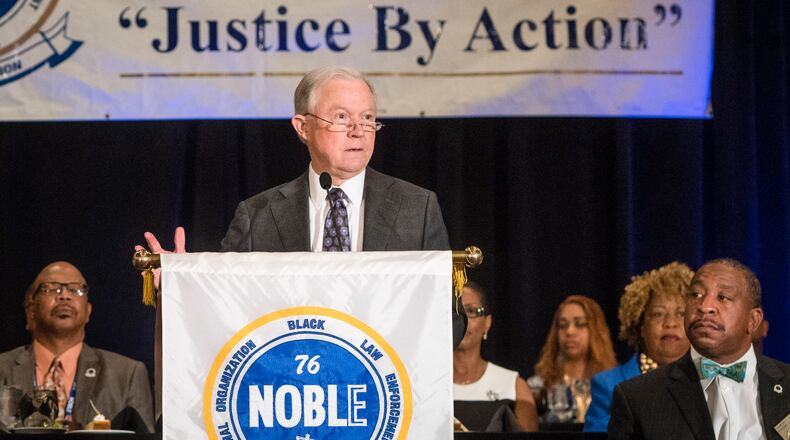U.S. Justice Department officials are preparing to investigate and potentially sue colleges and universities that have affirmative action admissions policies they believe discriminate against white students.
The New York Times first reported the plans late Tuesday. Some experts believe the effort may be directed toward private institutions with policies the Trump administration considers discriminatory.
“They’re probably going after the people who are fudging it,” said Lee Parks, an Atlanta attorney who represented three students in a 2001 case in which an appeals court ruled the University of Georgia’s admissions program considering race was unconstitutional.
Georgia’s public colleges and universities have not used race as a factor in admissions since the 2001 ruling.
UGA guarantees admission to the top two graduates from every accredited Georgia high school and provides targeted scholarships to attract minorities.
Parks believes the lawsuit improved socio-economic diversity UGA and other Georgia campuses, resulting in more low-income and first-generation students enrolling in college. Parks noted racial diversity hasn’t declined at the University of Georgia since the ruling. The percentage of black students has risen since 2001 from 5.9 percent to 8.4 percent, state data shows.
White students made up about 51 percent of the student enrollment last semester in the 28 University System of Georgia campuses, according to system data. In 2001, whites comprised about 67 percent of the system’s enrollment.
At Emory University, Georgia’s largest private institution, white students were less than half of its enrollment last year, according to data on its website.
Some Trump administration critics believe the discussions are intended to create anxiety among campuses about their admissions policies and discourage them from pursuing efforts to increase racial diversity among their student bodies.
“To me, it’s another example of the Trump administration pushing a culture of meanness toward different communities,” said Emery Wright, co-director of Project South, an Atlanta-based social justice organization that has programs that include building leadership skills among low-income youth.
Wright said affirmative action programs have been an effective, constitutional tool for campuses to improve their racial diversity, citing last year’s U.S. Supreme Court ruling that upheld the University of Texas’ affirmative action program.
“It guarantees access is provided to communities that have been historically excluded,” he said.
About the Author
Keep Reading
The Latest
Featured


